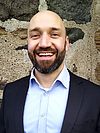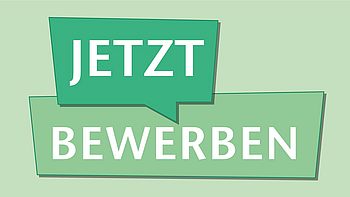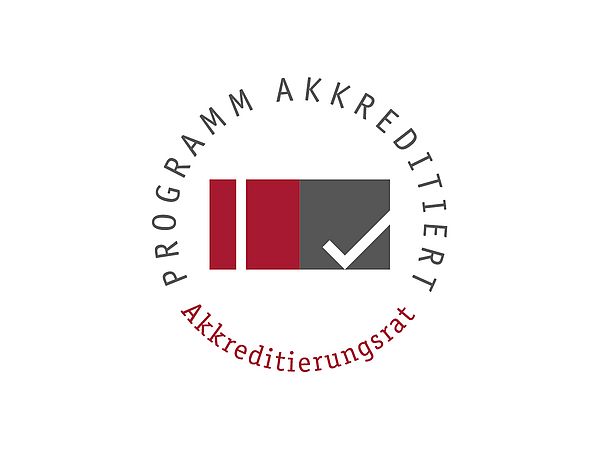Sports Engineering (Bachelor)
Once again, the Olympic and Paralympic Games have demonstrated the importance of excellent equipment for top athletic achievement. The development and construction of such equipment requires well-founded engineering knowledge along with proficiency in anatomy, physiology, sports science, and practical issues. Sports engineers are able to use specific material properties in combination with measurement and diagnosis methods, tailoring them specifically for applications in competitive sports as well as recreational, preventative, and rehabilitative exercise.
Jobs and careers
An external analysis of the job market concluded that graduates of the sports engineering degree course have opportunities in a variety of areas due to their broad-based education – for example, in the development and manufacture of sports equipment and materials. The development of functional, sustainable materials is becoming increasingly important. The major sporting-goods manufacturers, for example, offer a broad array of research and development tasks, with the area of materials engineering playing a major role as a foundation for the development of new products. This applies to both sports and rehabilitation technology. Sports engineers are generally able to be certified as specialists after completing further training, and they can then work as inspectors or assessors of sports equipment and sports infrastructure. Interesting job opportunities may also be available at training centers for competitive sports or rehabilitative exercise.
Possible fields:
- Development of sports equipment and materials, as well as rehabilitation technology
- Orthotics and prosthetics
- Materials testing in sports and rehabilitation technology
- Development of analytical methods in sports
Why Clausthal?
What’s special about this program at TU Clausthal is
- its interdisciplinary nature, with areas of focus in materials science and engineering
- its practical orientation – for example, in the use of sports equipment and materials
- the supportive educational environment of a small university
- collaboration with regional companies in sports and rehabilitation technology
- excellent opportunities for athletic activity through university sports and in the beautiful natural surroundings of the Harz mountains, e.g. at the TU boathouse
Program structure
The 6-semester bachelor’s degree program in sports engineering combines engineering with sports-science disciplines. It is interdisciplinary in nature, and imparts extensive foundational knowledge of physics, chemistry, mathematics, computer science, materials science, mechanical engineering, electrical engineering, drafting, and applied mechanics in the first four semesters. An interdisciplinary project and an industrial placement in sports engineering are part of the 5th semester. Design, instrumentation, and sports and rehabilitation technology are additional focal areas, as is an introduction to sports science, biomechanics, sports equipment and materials, and their application in practice.
Focus
- Foundations of engineering
- Materials science and engineering
- Anatomy and physiology
- Foundations of sports science
- Sports equipment and materials and their application
- Sports and rehabilitation technology
- Electives and an elective industrial placement in sports engineering
- Interdisciplinary project and bachelor’s thesis
- Athletic practice for sports engineers
Industrial placement
The industrial placement is 20 weeks long and is divided into an eight-week pre-study internship and a 12-week industrial placement. Detailed information on the areas of activity is available in the industrial placement stipulations for the B.Sc. in sports engineering.
Part-time study
The Bachelor's degree program in Sports Engineering can also be studied on a part-time basis. Further details on the requirements, structure and legal consequences of part-time studies are regulated by the"Regulations for Part-time Studies (TzO)" of Clausthal University of Technology in the currently valid version.
Before applying for and taking up part-time studies, a counseling interview with the responsible part-time study coordinator is obligatory. During this counseling interview, the part-time study coordinator agrees on an individual study plan (learning agreement) for the part-time study in consultation with the student.
The form for applying for part-time study (incl. Learning Agreement) can be found here: https://www.tu-clausthal.de/fileadmin/TU_Clausthal/dokumente/Studierende/Studierendensekretariat/Antrag_auf_Genehmigung_eines_Teilzeitstudiums.pdf

Program advisor
Diana Gottschlich, M.A.
Phone: +49 5323 72-7806
Fax: +49 5323 72-7899
E-Mail: bewegungswissenschaft@tu-clausthal.de
Sportinstitut
Julius-Albert-Straße 2, Room 3
38678 Clausthal-Zellerfeld

Prof. Dr. Uwe Wolfram
Phone: +49 5323 72-2792
E-Mail: uwe.wolfram@tu-clausthal.de
Institute of Materials Science and Engineering
Agricolastr. 6
38678 Clausthal-Zellerfeld
Studying in Clausthal
Start application now.
Program outline
Type of program: Bachelor
Duration: 6 Semester
Language of teaching: German
Degree: Bachelor of Science (B.Sc.)
Prerequisites: University admission requirements
Start date: Winter semester. If you wish to start studying in the summer semester, we recommend taking our Steiger College program.
Accreditation: Urkunde ASIIN
Starting your studies
Welcome Weeks (before the start of lectures)
The Clausthal University of Technology supports the start of studies with various event formats.
Pre-course in mathematics (before the start of lectures)
The Institute of Mathematics offers a pre-course in mathematics for all first-year students.
Other programs that may interest you
Materials Science and Engineering
Mechanical Engineering with focus on Bio Mechanics
Follow-on Master's programs
Computer science with application topic Sports and Technology
Materials Science and Engineering
Documents
Study program flyer
Model study plans
Part-time study
Examination regulations
Internship regulations
Elective Catalogs
Module Manual
![[Translate to English:] [Translate to English:]](/fileadmin/_processed_/9/1/csm_Beachvolleyball_1_1a8913aa18.jpg)

